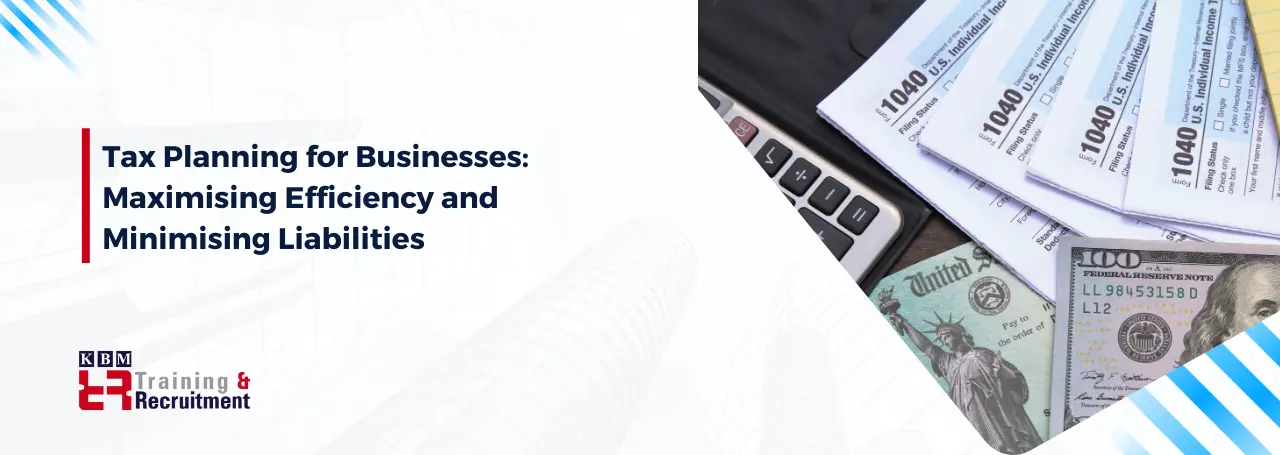Tax planning is crucial in ensuring a business's financial health and sustainability in the dynamic landscape of the United Kingdom's business. Effective tax planning not only maximises efficiency but also minimises liabilities, allowing firms to retain more of their hard-earned profits and invest in growth opportunities.
In this article, we will delve into the importance of tax planning for companies in the UK and explore strategies to optimise tax efficiency while complying with applicable laws and regulations.
Understanding the Importance of Tax Planning
Tax planning is a proactive strategy for strategically managing a business's tax affairs. It involves analysing the various tax implications of business decisions and structuring transactions to minimise the tax burden while maximising benefits. For companies in the UK, where tax laws are complex and subject to frequent changes, effective tax planning is essential to optimise financial outcomes and maintain competitiveness.
Maximising Efficiency Through Tax Planning Strategies
Several tax planning strategies can help businesses in the UK maximise efficiency and minimise tax liabilities:
- Utilising Tax Reliefs and Incentives: The UK tax system offers various reliefs and incentives to encourage research and development (R&D) or investment in specific industries. By taking advantage of these reliefs, businesses can reduce their tax liabilities while supporting innovation and growth.
- Structuring Business Operations: Carefully structuring business operations, such as choosing the appropriate legal entity or location, can have significant tax implications. For example, incorporating as a limited company rather than a sole trader may result in lower tax rates and liability protection for business owners.
- Capital Allowances and Tax Deductions: These allow businesses to deduct the cost of qualifying assets, such as machinery or equipment, from their taxable profits. Additionally, companies can claim tax deductions for certain expenses incurred in operations, such as employee wages or marketing expenses.
- Pension Contributions and Employee Benefits: Making employee pension contributions can provide tax advantages for businesses, as contributions are typically tax-deductible. Offering employee benefits such as childcare vouchers or cycle-to-work schemes can also result in tax savings for employers and employees.
- Timing of Income and Expenditure: Timing income and expenditure strategically can help businesses manage their tax liabilities more effectively. For example, deferring income to a future tax year or accelerating spending before the end of the financial year can optimise tax outcomes based on current tax rates and allowances.
Remaining Compliant with Tax Laws and Regulations
While tax planning aims to minimise tax liabilities, businesses must always ensure compliance with relevant UK tax laws and regulations—non-compliance results in fines, penalties, and reputational damage, outweighing potential tax savings. Working with qualified tax professionals or seeking advice from HM Revenue & Customs (HMRC) can help businesses explore complex tax laws and ensure compliance with their obligations.
Enhancing Tax Planning with Technology
Integrating technology, such as accounting software and tax management tools, can streamline business tax planning processes. These tools enable businesses to track income, expenses, and tax obligations more efficiently, ensuring accurate reporting and compliance with tax regulations.
Conclusion
Tax planning is an integral part of financial management for businesses in the UK, offering opportunities to maximise efficiency and minimise liabilities. By understanding the importance of tax planning and implementing effective strategies tailored to their specific circumstances, businesses can optimise their tax outcomes and contribute to their long-term success and sustainability in the competitive UK market.




















